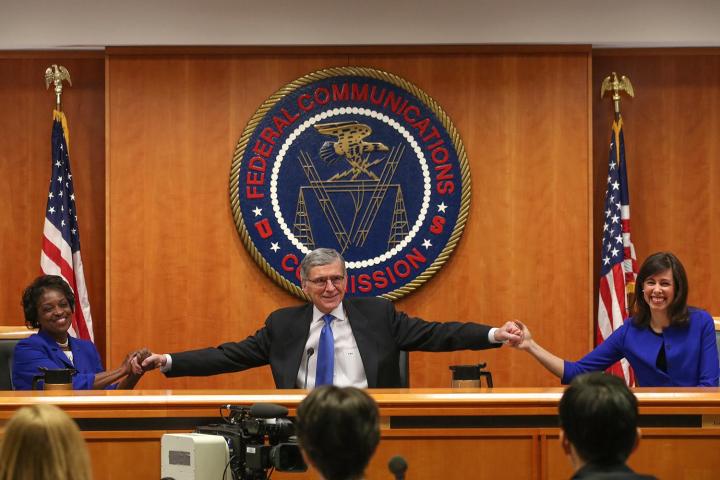
“Congress should forbid the Commission from using any appropriated funds to implement or enforce the plan the FCC just adopted to regulate the Internet. Not only is this plan bad policy; absent outside intervention, the Commission will expend substantial resources implementing and enforcing regulations that are wasteful, unnecessary, and affirmatively detrimental to the American public,” he said during a budget appropriations hearing.
“In short, the Internet is not broken. And it didn’t need the FCC to fix it.”
Pai’s opposition stems from the FCC’s February 26 vote that classified Internet providers as common carriers. The decision effectively outlawed so-called Internet “fast lanes,” which are essentially paid prioritization schemes that would allow some companies to deliver content faster for a price.
Pai was in the minority during the Net neutrality vote. He was one of two Republicans in the FCC panel, both of whom voted against the proposal. The other three commissioners are Democrats, including FCC Chairman Tom Wheeler, and they all voted to approve the measures.
“The truth is this, the Internet is the greatest example of free-market innovation in history. The Internet empowers Americans to speak, to post, to rally, to learn, to listen, to watch, and to connect in ways our forefathers never could have imagined,” Pai said. “In short, the Internet is not broken. And it didn’t need the FCC to fix it.”
Pai also argued that the FCC’s newfound ability to “micromanage” the Internet is harmful to American consumers. He warned that broadband bills would go up, putting out an estimate of new taxes that amount to 11 billion. He also claimed that Internet speeds would be slower, saying that the U.S. risks gaining problems similar to that of broadband deployment in Europe.
He even went as far as embellishing on some of his claims. Pai mentioned that Netflix now opposes Title II of the Communications Act of 1934, the law that the FCC used to reclassify ISPs. As this blog post from Netflix shows, Pai’s claim is not true.
Wheeler, who also testified in the budget hearing, defended his agency’s decision, saying that the FCC followed the correct process in approving new rules. He also pointed out specific cases where Net neutrality was challenged, adding that fighting claims in court would not cost more since the FCC has in-house lawyers. For the 2016 fiscal year, the FCC is requesting $530 million in funding, as well as $51 million on a new office lease.


